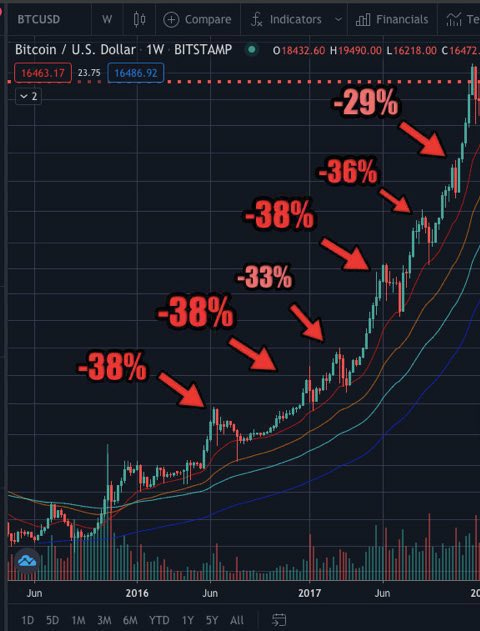INTRODUCTION
May 23, 2021
Hi everyone—I’m so glad to have you here. What a week.
Following the release this week of Fed minutes from their April meeting, it was revealed that Central bank members elected to keep holding interest rates at near-zero and keep buying government bonds with the money they keep printing. They do this so people spend their savings and take on new debt in order to “stimulate the economy.”
Market participants called BS. 10-year and 30-year Treasury yields rose following the release of the report (signaling increased doubt in the government’s ability to pay those out. i.e. They’re more risky). Former Treasury Secretary Larry Summers doubled down on his criticism of the Federal Reserve, saying they’re getting this all wrong and creating a “dangerous complacency” in financial markets—actually standing in the way of recovery.
It turns out paying people to stay home discourages job growth. Who knew.
“The banks have a similar situation. They’re renting money. And they cannot make a profit on it unless they have something to rent. So the money supply in a bank is critical to them. It’s always looking for people to borrow, and borrow, and borrow. The banks will die if people don’t borrow money.”
—G. Edward Griffin, author of The Creature from Jekyll Island: A Second Look at the Federal Reserve
You may say, “Well, yes okay it’s not ideal, but the Fed and the government had to do this because we had a pandemic.”
But the stage was set for all of this well before Covid. They just needed an excuse to go through with it.
Historically it’s usually war that is used to justify money printing, public sacrifice, federal aid, and the resulting inflation, but this time it was a coronavirus. It behooved them to react with excessive, authoritarian action.
Back in August 2019, BlackRock actually published a paper along with Stanley Fisher (former Vice-Chair of the US Federal Reserve Board of Governors) that laid out the concept of having to “go direct” in the next economic downturn. Everything from aggressive fiscal stimulus up to and including helicopter money, and coordinated financial repression to maintain low interest rates after an inflationary response.
“The pandemic was a catalyst and an accelerant, but the pieces (high debt, major wealth concentration, and rising populism) were already set. Such a fragile system had no defense against any external shocks, and an external shock we had.”
—Lyn Alden, investment strategist
A big lesson of history is that banks don’t solve problems they leverage them.
It’s part of the reason the founding fathers of the United States were adamant about making sure America did not have a central bank or a fiat currency. It’s one of the things George Washington, John Adams, and Thomas Jefferson agreed on.
“And I sincerely believe with you, that banking establishments are more dangerous than standing armies; and that the principle of spending money to be paid by posterity, under the name of funding, is but swindling futurity on a large scale.”
—Thomas Jefferson to John Taylor, 1816
Central bankers and governments create rules that they’re allowed to break because it allows them to appear responsible and caring while creating the conditions for dependency on them as the solution to the problems they create.
Did you know that since the 1960’s the US as raised its debt ceiling 78 times?
78 times.
In other words, the government put a limit on the amount of debt the US could go into in order to appear “fiscally responsible,” and then proceeded to break that limit 78 times without any consequences.
“When the Fed creates $3-trillion dollars of money in a matter of weeks by pushing a button, it consolidates the power to price and value human time. That is not okay. Humans are not supposed to have that kind of power over other humans.”
—Ross Stevens, President/CEO/Co-Founder of Stone Ridge Asset Management
You might be thinking: okay, so? What am I gonna do about it?
I think it’s important to pay attention and see what’s really happening—not so you necessarily do something, but so that you don’t get emotionally manipulated into being misled and misguided. So that you don’t do something you’re being made to feel you need to do.


Once you realize that today’s capital markets are artificially propped up and overheated due to too much money sloshing around the system, and that dollars are being debased in order to make debt cheap and encourage spending, you may be less willing to take unnecessary risks and buy things you don’t want or need.
Once you see it, it’s very hard to un-see. And that’s a good thing.
Until next time 🤙,
“Men feel the good less intensely than the bad.” —Livy (64-59 BC – AD 12-17)
Breaking 🌊
🎧 Spotify will auto-transcribe podcasts over the coming weeks. [The Verge]
📉 Coworking space pioneer WeWork reports quarterly loss of nearly $2.1B ahead of public listing [Reuters]
✈ Travel Startups Start Hiring Again as Signs of Wanderlust Emerge [WSJ]
₿💱 Crypto Crash: When Musk, the Environment, Tax Day and China Collide [Blockworks] Institutional Bitcoin Buying Spiked Around Wednesday’s Crash [Coindesk]; Cathie Wood says Bitcoin is going to $500,000. “I think Bitcoin is in a capitulation phase - which is a really great time to buy” [Bloomberg]; US Treasury: Businesses Should Report Crypto Transfers of $10,000+ to IRS [Blockworks]; Jack Dorsey Says Bitcoin Can Make the World Greener. Could He Be Right? [New Yorker Magazine]
From The Tweetbox 🐦
Not using leverage and being generally chill has turned out to be more of an edge than almost literally everything else I’ve done to try to gain an edge. [Tweet]
You need to base your investment thesis on a probability—a spectrum—whether it’s bell-shaped or asymmetric to the upside… Anyone who is not doing that math is not qualified to be an institutional or personal investor [Tweet]
The clearest indication that we are going to have a highly inflationary outcome (& non-transitory inflation at that) is the number of people on FinTwit that think that using electricity to create a hard store of value like BTC is a waste of energy. “Let them eat bonds.” [Tweet]
#Bitcoin has the same amount of volatility as Amazon stock...when was the right time to sell Amazon? That would be never. Volatility is not your enemy. [Tweet]
The only two minute summary on China's #Bitcoin ban you need to watch, by
@Nic__Carter [Tweet]



For The Pros 😎
Researchers found that allowing customers to pick from three or four prices (as opposed to any price) boosted sales considerably. Sales went up so much in the study that it was an advantageous strategy even with consumers choosing lower prices. (Link available to Pro subscribers)
The perfect desk setup for remote workers. Worth looking into, given the amount of the pain & posture related problems being reported. (Link available to Pro subscribers)
A detailed guide for launching on Product Hunt. (Link available to Pro subscribers)
$120k in infoproduct sales: how one creator was able to extend the “long tail” to maintain ~$1-2k of sales per day (Link available to Pro subscribers)
Must Watch 👀
Worth A Read 📃
Gamification of Chinese consumer tech (Abridged version). The reasons why every Chinese consumer app is a massive game, by Lillian Li
Mobile mental real estate is scarce, and every app is looking for more time and attention. Gamifying the user experience in e-commerce platforms or social networking platforms means that, first and foremost, the app can compete for a broader range of the user's time. If a utility app is suddenly made entertaining, users will mentally switch viewing engagement from being a chore to leisure.
Many of us will happily adhere to a set of strange rules for nothing but virtual points. As the Games Maker for the New York Times writes, “Games are a controlled form of freedom. Our brains grab onto them because they are structures that exist to be avoided.” Games are fun. It gives the user a sense of achievement, progress, and controlled capriciousness in a tight feedback loop.
Our Mimetic Culture: People Who Influence (and Are Influenced By) the Desires of Others, by Luke Burgis
Mimesis is a special kind of imitation, though.
- It’s almost always hidden
- It’s reactionary or reflexive
- It’s never about imitating a model directly or to the same degree
It’s rivalrous imitation. It’s imitation that seeks differentiation.
Here’s An Idea 💡
Define niche keywords and create a glossary to boost traffic. [Indiehackers]
If your niche has its own lingo, it may be an SEO opportunity. Consider getting quality traffic and backlinks by defining niche keywords and creating a glossary.
PNGs 🖼
“You can’t have 200% CAGR upside for ten years without massive volatility in route. During the last bull run we saw 6 correction of this magnitude or more.” [Source]
Groms 🐣
Pods & Schools 🐬🐠
🔊 A chat with pro surfer Bethany Hamilton about surfing, Bitcoin 101, inflation, and more. Could this be more up my alley?? No, the answer is no it couldn’t.
🏫 I’m currently in the middle of the “ECO11: Principles of Economics I” course from Saifedean Ammous and it’s fantastic. Highly recommended for anyone looking for an approachable, bottom-up understanding of economics that draws on the Austrian school.
Tools of the Trade ⚒
Products I use to make money
Swan. I recently became an official Swan partner because I love them so much. So if you're like me and just want an easy, automated way to buy bitcoin on the regular with the lowest fees in the game, head to https://swanbitcoin.com/Mulvey. You even get $10 for free ✨
StockCharts. I easily make back the small monthly subscription fee with the superpowers it gives me.
Carrd. I use card for all my landing page needs. Use this link or referral code 892PYX69 to start your own web empire.
Disclaimer
Nothing in this email is intended to serve as financial advice. Do your own research.











